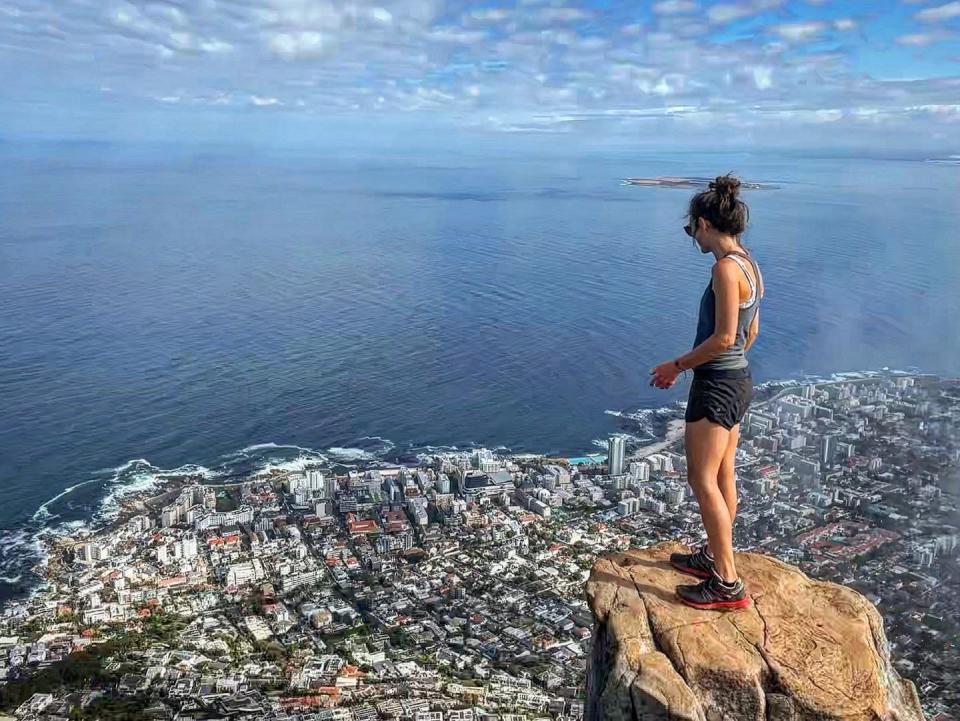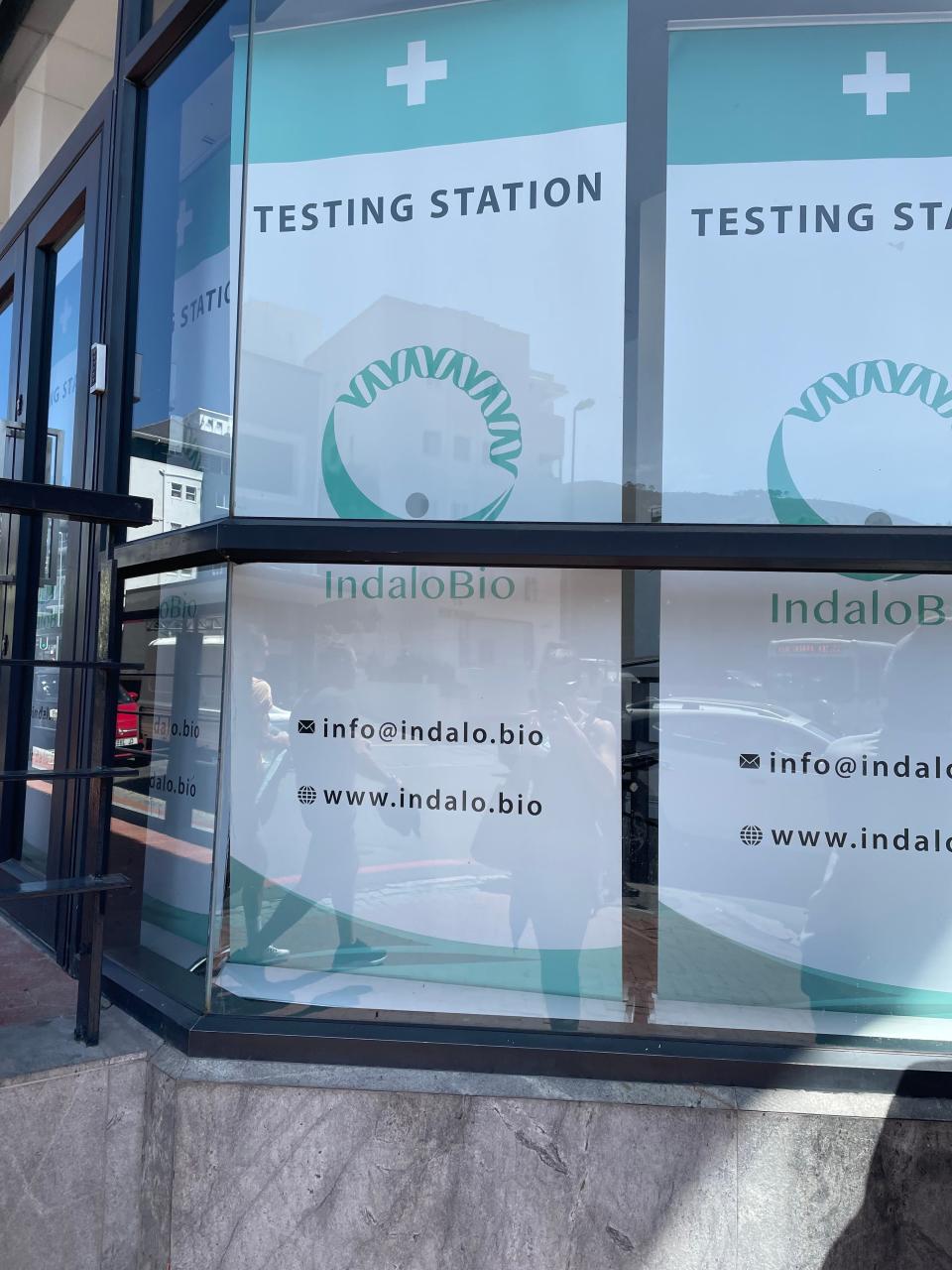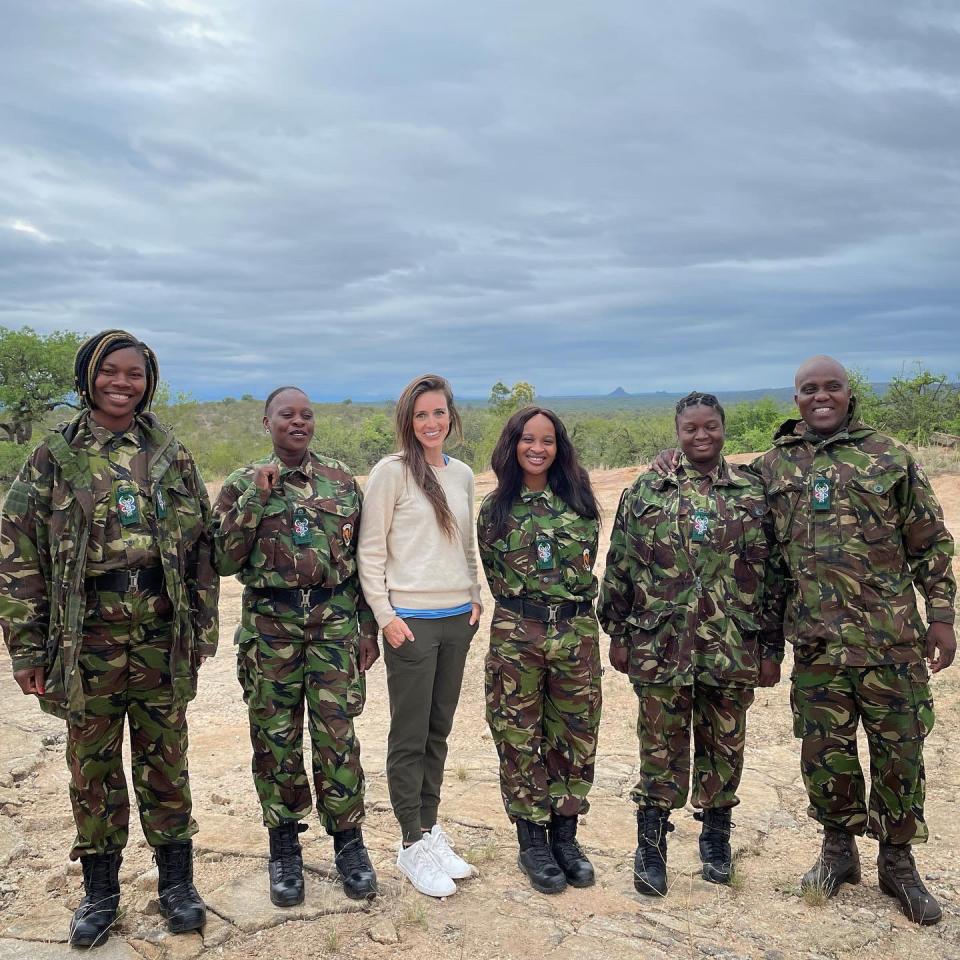I was in South Africa when new travel restrictions were announced: How I made it home
Black Friday is supposed to feel like Christmas morning. This year it felt like Armageddon.
Instead of my alarm, I woke up to omicron – or rather, a barrage of messages from everyone who knew I was visiting Cape Town, South Africa. While I slept, news broke stateside about the latest COVID-19 variant. The U.K. had already banned flights from South Africa. Turning on the TV, I learned other countries were following suit.
Instead of shopping for gifts, I started shopping for a new flight home. Mine was scheduled for Tuesday. But in the interim, the U.S. could decide to deny entry to travelers coming from the new variant region. Lufthansa, who I was flying via Frankfurt to Seattle could also cancel my flight.

►CDC orders airlines to share information on passengers from 8 countries, shortens testing window
►Stay up to date: Subscribe to our Travel newsletter
My body couldn't afford to be stuck. I was due for a chemotherapy treatment the following Wednesday. And my bank account couldn't afford to buy a new ticket. Economy seats on 46-hour one-way itineraries via Ethiopia started at $5,800 when I checked. Roundtrip nonstop flights from the U.S. to South Africa normally start around $1,500. I tried to change mine. But every time I found a flight with a fare difference of less than an additional $500, I'd get to the checkout page to learn it was "no longer available."
Flights evaporated as quickly as they appeared on my screen.

Trying to book a COVID-19 test was also impossible. Since the clinic by my hotel hadn't looked busy all week my original plan was to walk in and get tested on Monday. But by mid-Friday, a line wrapped around the block.
I tried to schedule a test online. The soonest available was five days away. Back at The President Hotel some of my fellow guests fled to the airport – hoping to secure a seat on one of the last flights out. About 50 Dutch frat boys on holiday camped out at the hotel bar, only semi-concerned their flights were canceled.
One last weekend of fun in Cape Town
Fight, flight or freeze? Ultimately, my response was to freeze. With no word from the airline, I assumed my Tuesday flight was still on as scheduled. Why not have fun while I waited out the storm? Saturday, I went to the bustling Oranjezicht farmer’s market, where someone joked over the loudspeaker about not needing British tourists' money anyway. Sunday, I went to Mojo Market – an indoor food hall teeming with more than 200 people and a live band.

Of course, I followed the news and checked my email for flight updates, but only sporadically. Via social media, well-meaning friends and family were doing a great job of reminding me of my situation. Still, they only skimmed the headlines.
President Joe Biden wasn't banning travel from South Africa. He was imposing restrictions. Sure, I had to fly through Germany. But as long as I didn't leave the transit area in the Frankfurt airport the E.U.'s new proposed ban wouldn't affect me.
“We're going to be cautious, make sure there is no travel to and from South Africa and six other countries in that region. Except for American citizens who are able to come back," Biden said Friday.
U.S. airlines have been asked to collect contact-tracing information for inbound international travelers and send to the CDC "upon request" since Nov. 8, when the country adopted a new set of international travel restrictions.
Read the fine print before traveling, know the restrictions
The hardest part was getting a COVID-19 test. Testing sites were swamped, and clinics weren't answering calls or emails. With nothing to lose, I arrived at a testing site super early Sunday morning. The nurse was still setting up. I handed her 450 ZAR (about $28) in cash. Five minutes and a quick swab up one nostril later, I had a negative antigen test.
I wrote this missive from somewhere over Iceland. After being told at the Cape Town airport that my rapid antigen test taken 62 hours earlier wouldn't suffice, I finally convinced the Lufthansa agents to check me in. It was a pilot error. The agents knew the requirements for entering Germany – must be a German citizen and have a negative PCR test taken within the last 24 hours. Fortunately, I knew the requirements for my final destination – must be a U.S. citizen and have any negative viral test taken within 72 hours.
►Federal mask mandate extended: Be prepared to mask up on planes through mid-March
The president is announcing a plan Thursday that requires travelers entering the country by air to test negative for COVID-19 within a day of departure, regardless of vaccination status or nationality, instead of within three days which was my case at the time.
In pandemic times I'm learning it pays to read the fine print, even if it's always changing. Do I regret traveling to South Africa and enduring a weekend of wondering how long it would be until I could go home? Not really. I'm a travel writer. As they say on safari, "A leopard doesn't change its spots."
This article originally appeared on USA TODAY: How I managed to leave South Africa after omicron restrictions

